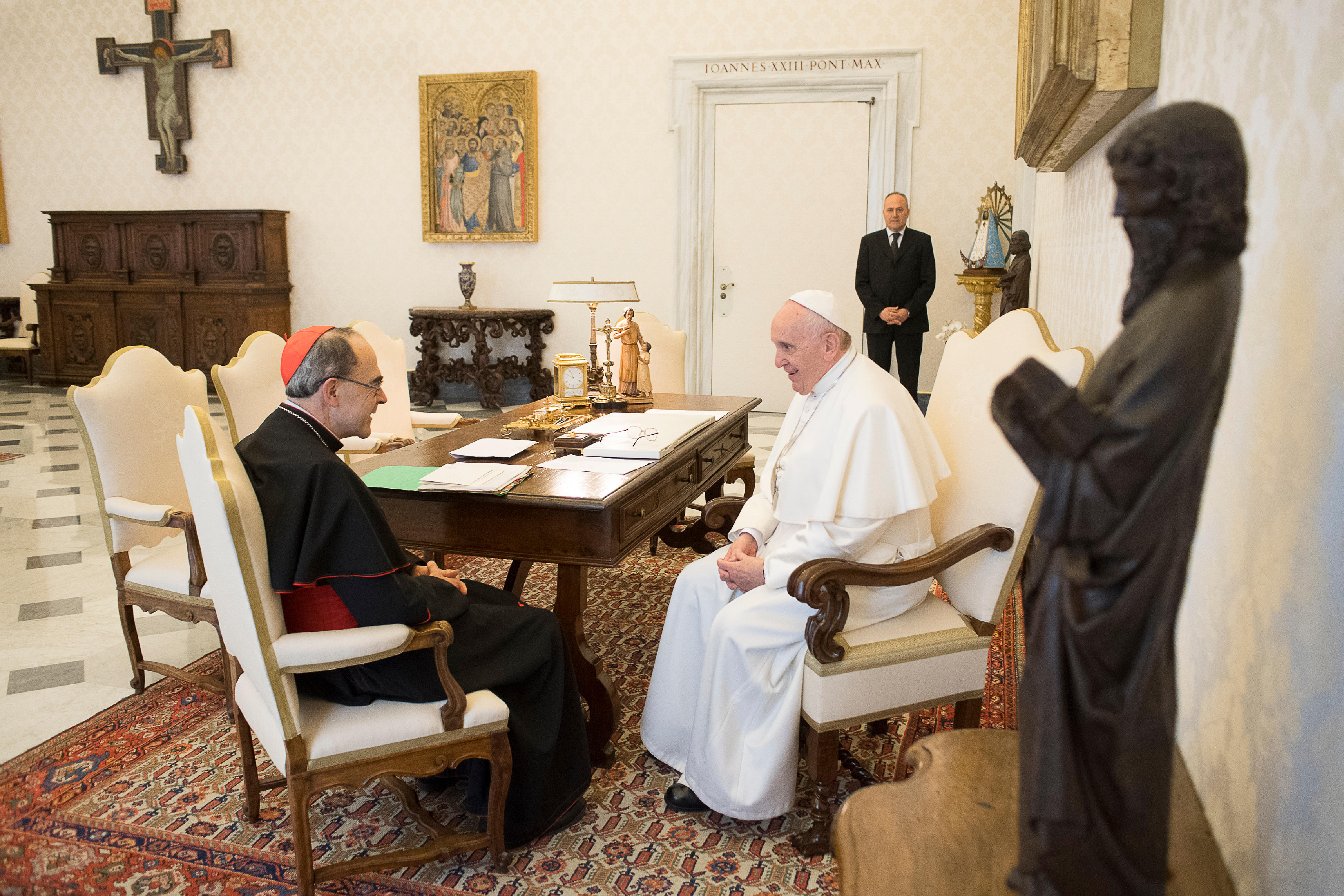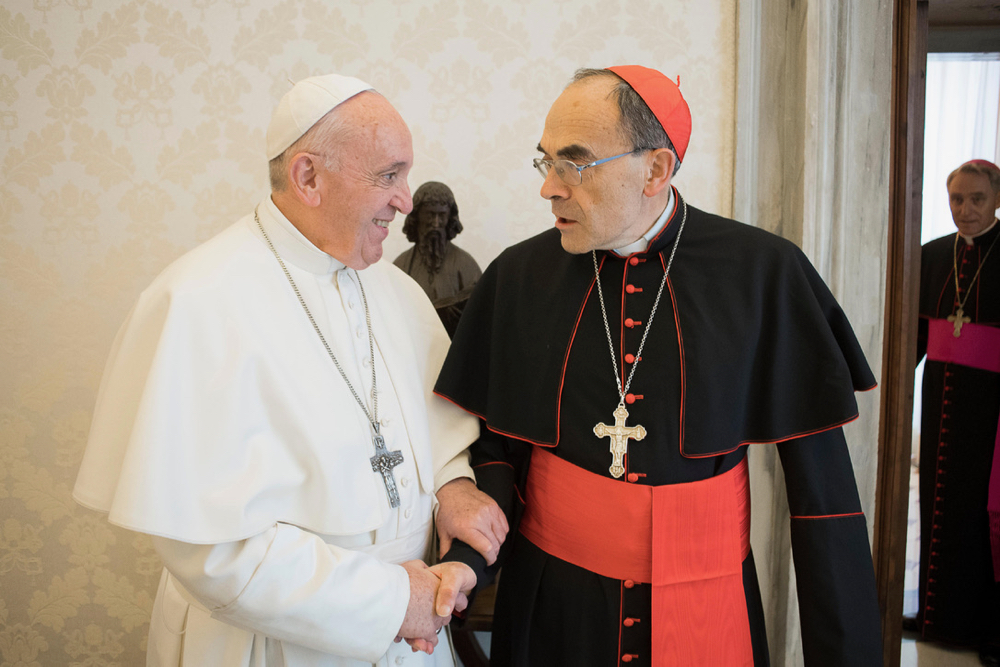Pope Francis’ refusal of the resignation of French Cardinal Philippe Barbarin underscores how the abuse crisis is reshaping the relationship between Church and state.
Following a court conviction for failing to report abuse Cardinal Barbarin, presented his resignation as Archbishop of Lyon to the Pope on Monday 18 March. While technically keeping the Lyon prelate in his position, Francis has allowed him to step away from running the archdiocese and put a Vicar-General in charge. Barbarin no longer has executive responsibility.
This is a delicate and complex situation for the Pope.
To accept the resignation of a prelate convicted in the courts would underline that the Church respects that allegations relating to abuse should always be dealt with by the civil justice system. The survivors of abuse deserve nothing less.
But behind the Pope’s decision might be a concern that to accept the resignation would set an unshakeable precedent that a bishop handed a pre-appeal conviction must always be removed, which could lead to bishops being forced out in jurisdictions that are hostile to the Church – though whether that argument holds water in the Barbarin case is moot. There is also the case of Australian Archbishop Philip Wilson of Adelaide, who was convicted of failing to report abuse only to have that overturned on appeal. Like Wilson, Barbarin is appealing the decision of the court.
In Rome, it is also argued that to assert the Church’s independence and freedom is not to hide from justice behind diplomatic immunity, but to avoid the toxic pitfall of the Church becoming allied to powers of the state.
But what is perhaps being neglected is the equally toxic, and potentially perilous, pitfall for the Church is being seen to pick and choose between the judgments of the civil authorities. Along with Barbarin, the Pope is now faced with French prosecutors demanding that his ambassador to Paris should have his diplomatic immunity removed so that he can face charges of sexual assault.
In Australia, there are calls for more disciplinary action against Cardinal George Pell, convicted for six years for child sexual abuse offences. In the same way they are waiting for Barbarin’s appeal, the Vatican is holding fire until Pell’s appeal is heard. And the Barbarin case could be argued as different to Pell’s as the state did not prosecute the French prelate, who was convicted following a private prosecution brought by abuse victims.
In the meantime, the abuse crisis is stripping away any free-passes the Church might have had in the past from the state, and a new relationship is being mapped out. Along with convictions of cardinals, in the United States there is a department of justice probe into the Church while in Chile prosecutors are investigating at least four dioceses over abuse.
In 2007 it was the recently deceased Cardinal Godfried Danneels, who saw criticism of his handling of abuse and a raid by police of his private residence, predicted that living as a diaspora would become the norm for Christians.
“Every foreign land is their country, and every country is foreign,” he said. His words sound prophetic.



 Loading ...
Loading ...